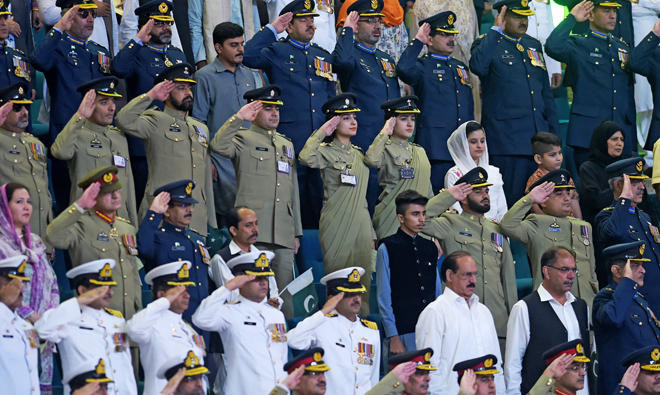ISLAMABAD: Pakistan told a United Nations forum this week India was using river waters as a political weapon by suspending the Indus Waters Treaty (IWT), warning that Islamabad would not allow New Delhi to cut off the lifeline of 240 million people or turn water into a tool of coercion.
The remarks came during an Arria-formula meeting of the UN Security Council, an informal session allowing open discussion on pressing international issues. The forum was held as tensions escalated following India’s decision to suspend the 1960 IWT.
While New Delhi has cited a recent militant attack in Indian-administered Kashmir to justify the move, Islamabad has denied any involvement and warned that blocking Pakistan’s access to river waters threatens regional stability and violates international law.
Addressing the forum on Friday, Ambassador Usman Jadoon, Pakistan’s deputy permanent representative to the UN, emphasized that access to clean water was a fundamental human right. He condemned India’s actions, pointing out the suspension of the IWT constitutes a grave violation of international law.
“India’s decision to illegally and unilaterally suspend the 1960 Indus Waters Treaty, aiming to impede the flow of water guaranteed to Pakistan under the Treaty, is a grave violation of international law, including human rights law, the treaty law and customary international law,” Jadoon said.
He further criticized statements from Indian leadership suggesting intentions to “starve the people of Pakistan,” describing such rhetoric as dangerous and perverse.
Jadoon called upon India to adhere to its legal obligations and refrain from actions that could disrupt the flow of rivers vital to Pakistan’s population.
“We strongly condemn India’s unlawful announcement to hold the Treaty in abeyance and call upon India to strictly abide by its legal obligations and refrain from stopping, diverting or restricting rivers that are a lifeline for 240 million people of Pakistan,” he continued. “We will never accept any such moves.”
The IWT, brokered by the World Bank in 1960, has been a cornerstone of water-sharing between the two nations. Its suspension marks a significant escalation in India-Pakistan relations, with potential implications for regional stability and humanitarian concerns.















